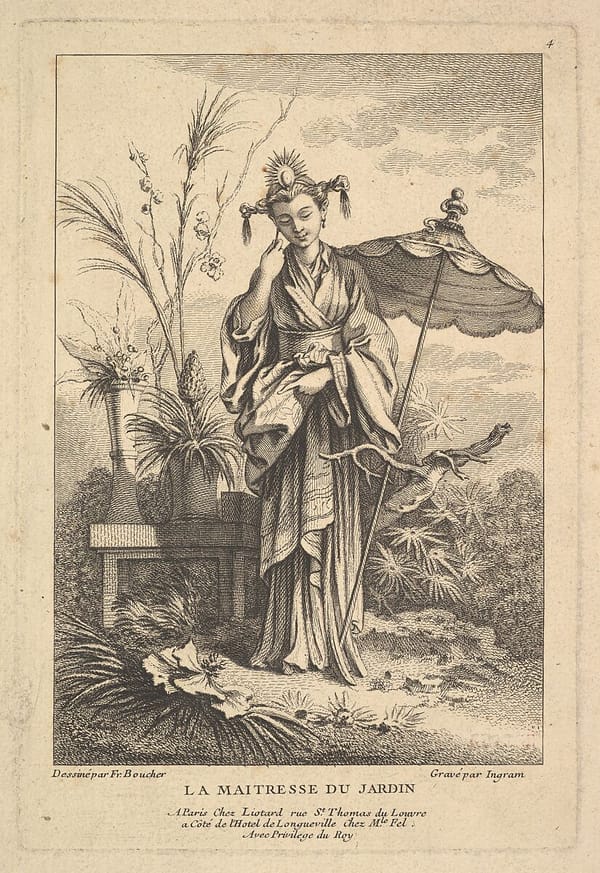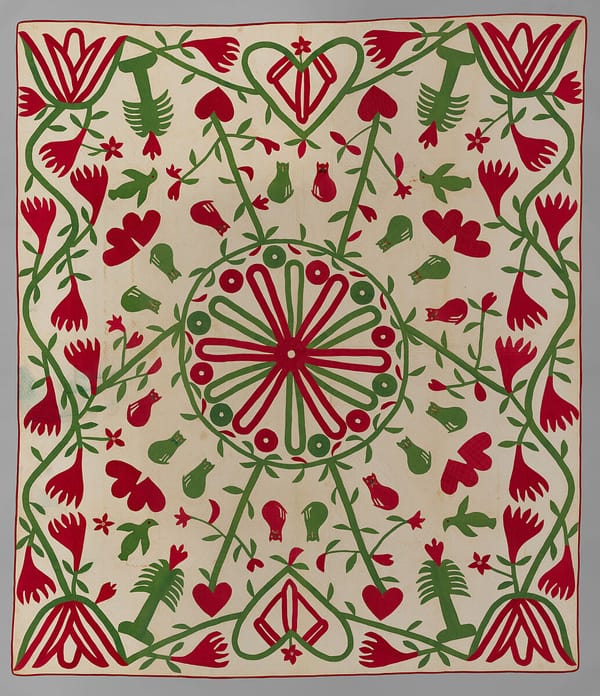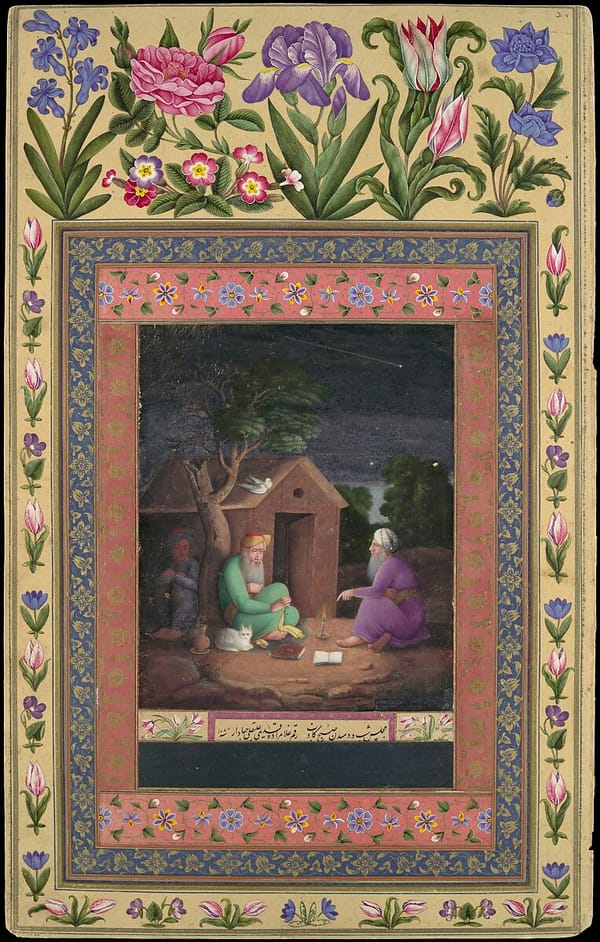September 17 2023
Misfortune weighs most heavily, he says, on those who “expect nothing but good fortune.”
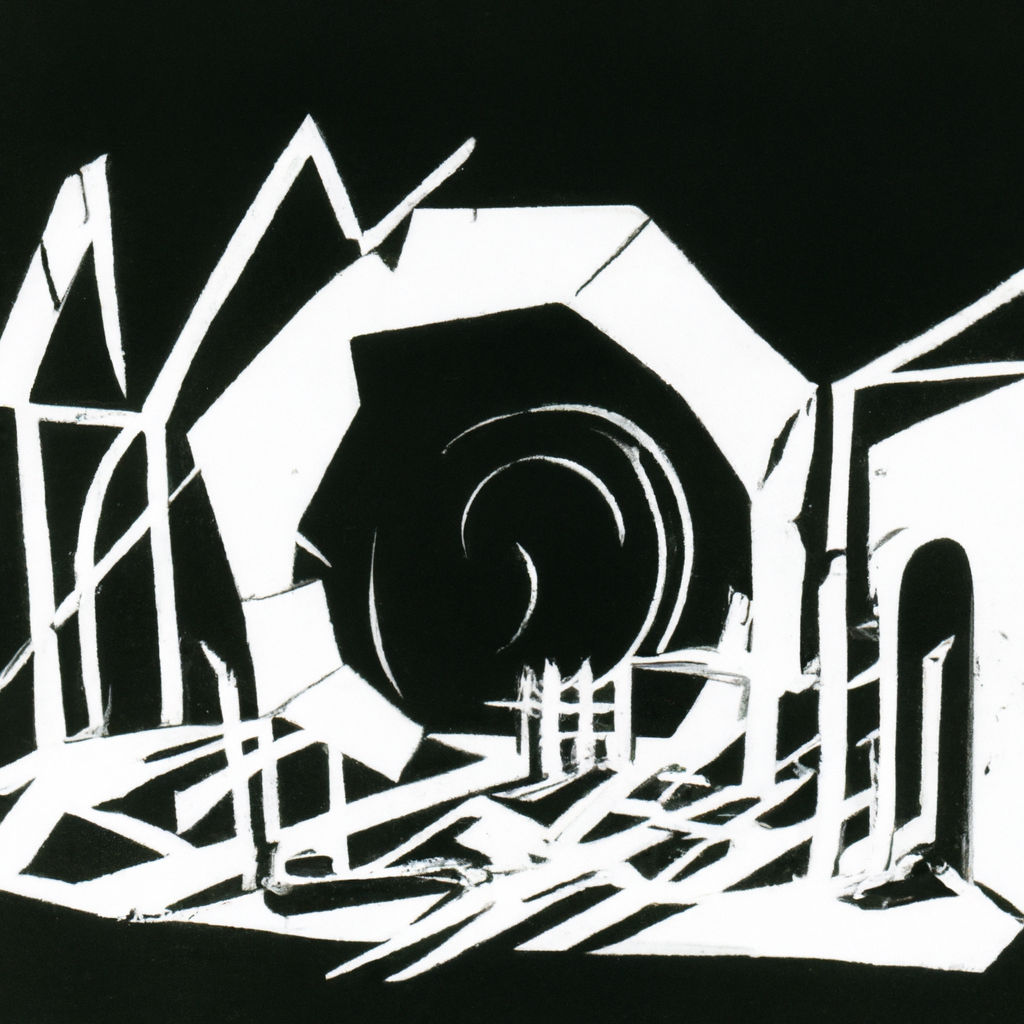
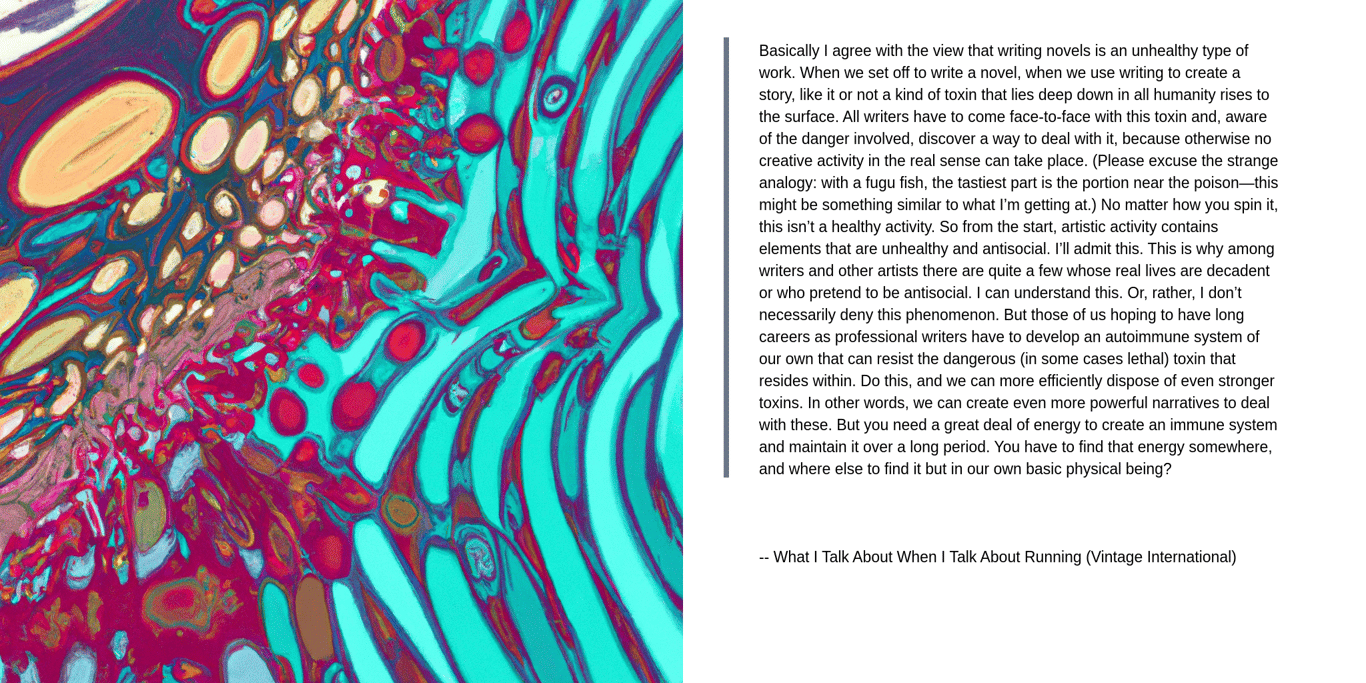
Basically I agree with the view that writing novels is an unhealthy type of work. When we set off to write a novel, when we use writing to create a story, like it or not a kind of toxin that lies deep down in all humanity rises to the surface. All writers have to come face-to-face with this toxin and, aware of the danger involved, discover a way to deal with it, because otherwise no creative activity in the real sense can take place. (Please excuse the strange analogy: with a fugu fish, the tastiest part is the portion near the poison—this might be something similar to what I’m getting at.) No matter how you spin it, this isn’t a healthy activity. So from the start, artistic activity contains elements that are unhealthy and antisocial. I’ll admit this. This is why among writers and other artists there are quite a few whose real lives are decadent or who pretend to be antisocial. I can understand this. Or, rather, I don’t necessarily deny this phenomenon. But those of us hoping to have long careers as professional writers have to develop an autoimmune system of our own that can resist the dangerous (in some cases lethal) toxin that resides within. Do this, and we can more efficiently dispose of even stronger toxins. In other words, we can create even more powerful narratives to deal with these. But you need a great deal of energy to create an immune system and maintain it over a long period. You have to find that energy somewhere, and where else to find it but in our own basic physical being?
-- What I Talk About When I Talk About Running (Vintage International) (affiliate link)
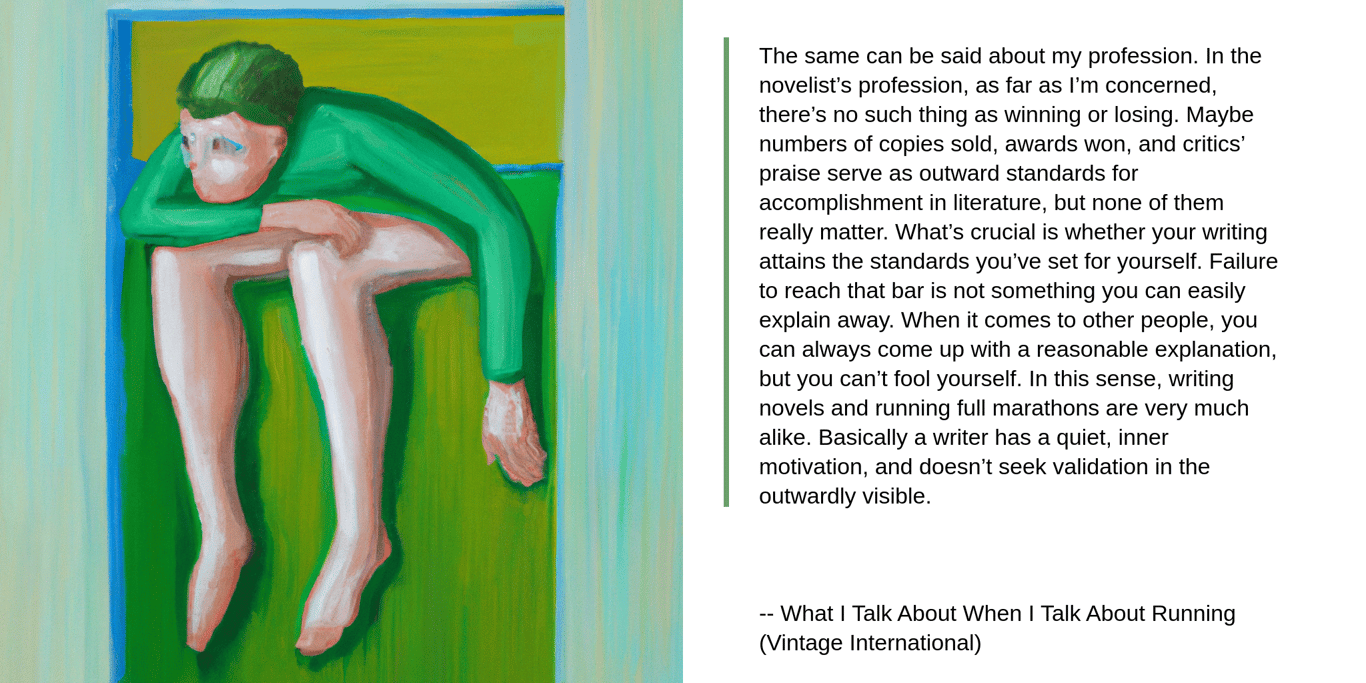
The same can be said about my profession. In the novelist’s profession, as far as I’m concerned, there’s no such thing as winning or losing. Maybe numbers of copies sold, awards won, and critics’ praise serve as outward standards for accomplishment in literature, but none of them really matter. What’s crucial is whether your writing attains the standards you’ve set for yourself. Failure to reach that bar is not something you can easily explain away. When it comes to other people, you can always come up with a reasonable explanation, but you can’t fool yourself. In this sense, writing novels and running full marathons are very much alike. Basically a writer has a quiet, inner motivation, and doesn’t seek validation in the outwardly visible.
-- What I Talk About When I Talk About Running (Vintage International) (affiliate link)
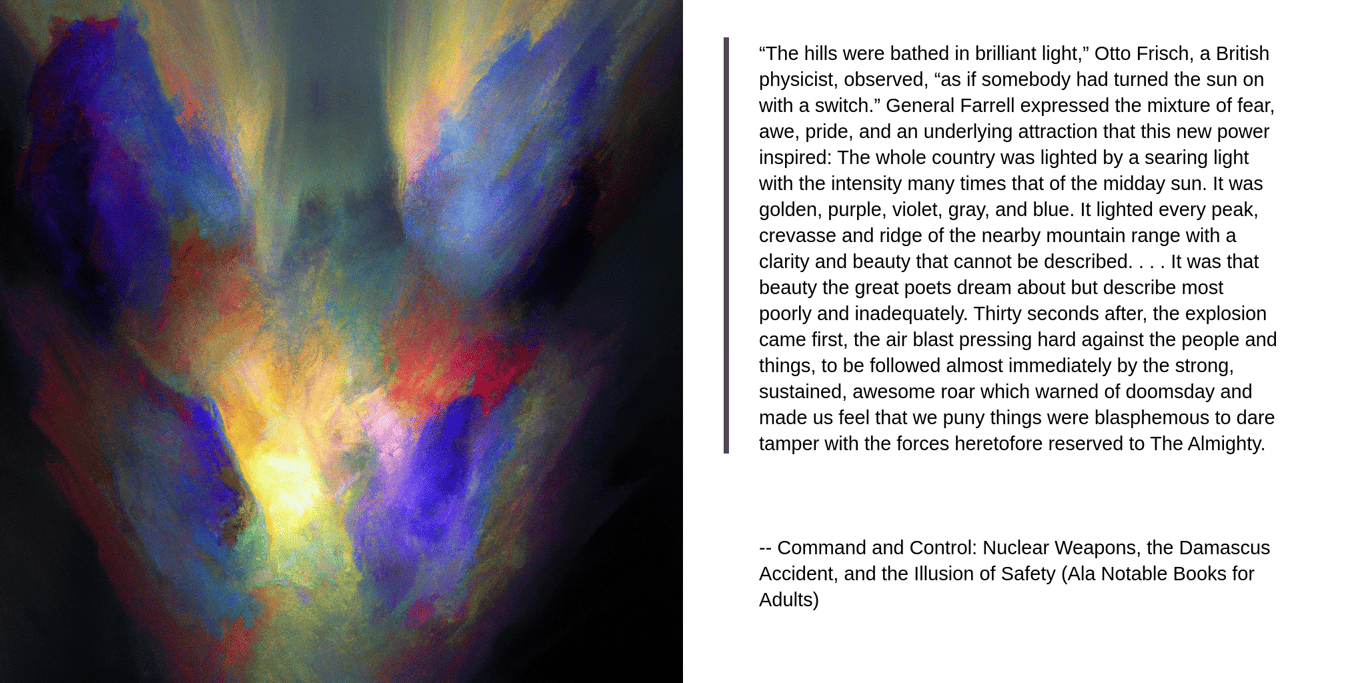
“The hills were bathed in brilliant light,” Otto Frisch, a British physicist, observed, “as if somebody had turned the sun on with a switch.” General Farrell expressed the mixture of fear, awe, pride, and an underlying attraction that this new power inspired: The whole country was lighted by a searing light with the intensity many times that of the midday sun. It was golden, purple, violet, gray, and blue. It lighted every peak, crevasse and ridge of the nearby mountain range with a clarity and beauty that cannot be described. . . . It was that beauty the great poets dream about but describe most poorly and inadequately. Thirty seconds after, the explosion came first, the air blast pressing hard against the people and things, to be followed almost immediately by the strong, sustained, awesome roar which warned of doomsday and made us feel that we puny things were blasphemous to dare tamper with the forces heretofore reserved to The Almighty.
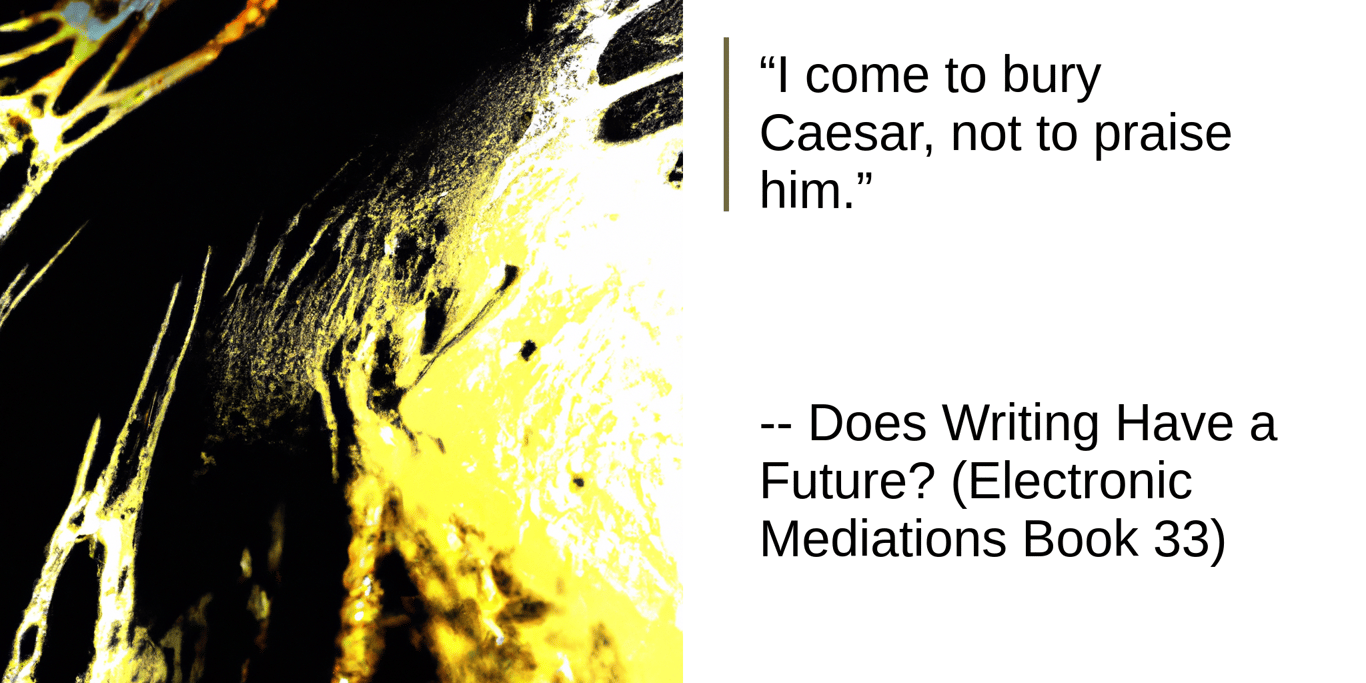
“I come to bury Caesar, not to praise him.”
-- Does Writing Have a Future? (Electronic Mediations Book 33) (affiliate link)
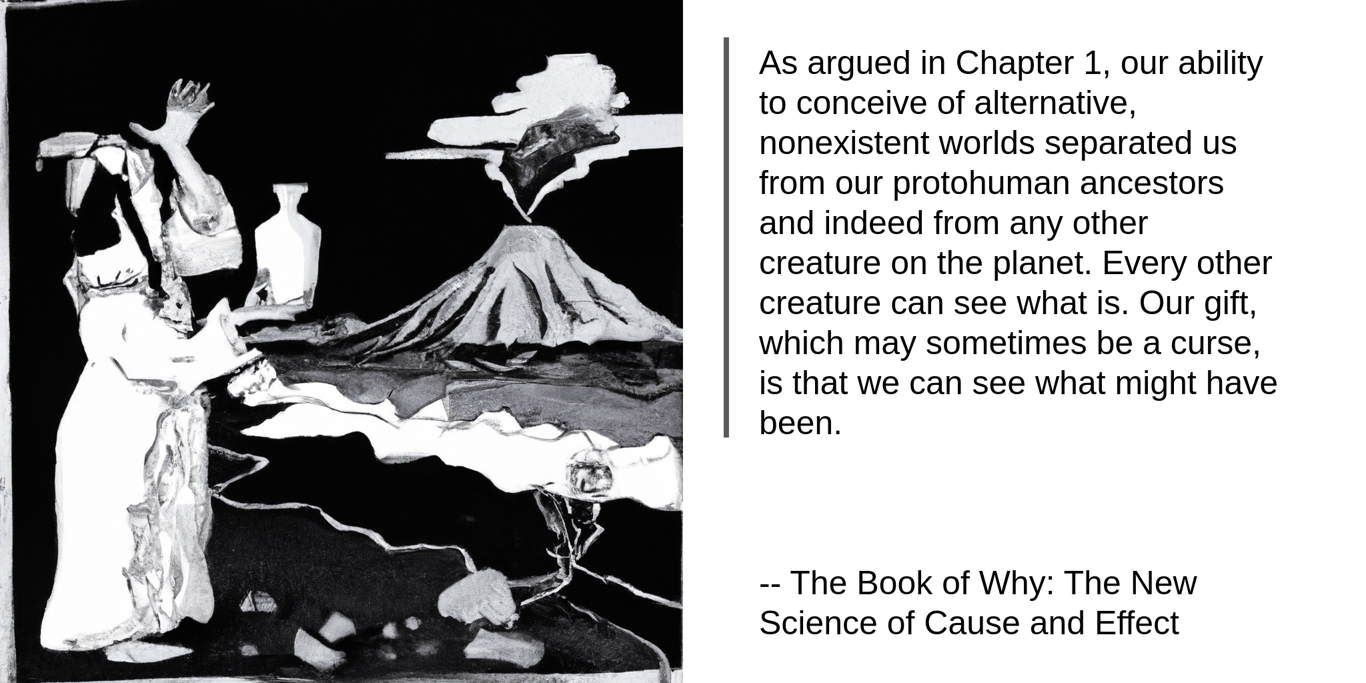
As argued in Chapter 1, our ability to conceive of alternative, nonexistent worlds separated us from our protohuman ancestors and indeed from any other creature on the planet. Every other creature can see what is. Our gift, which may sometimes be a curse, is that we can see what might have been.
-- The Book of Why: The New Science of Cause and Effect (affiliate link)

